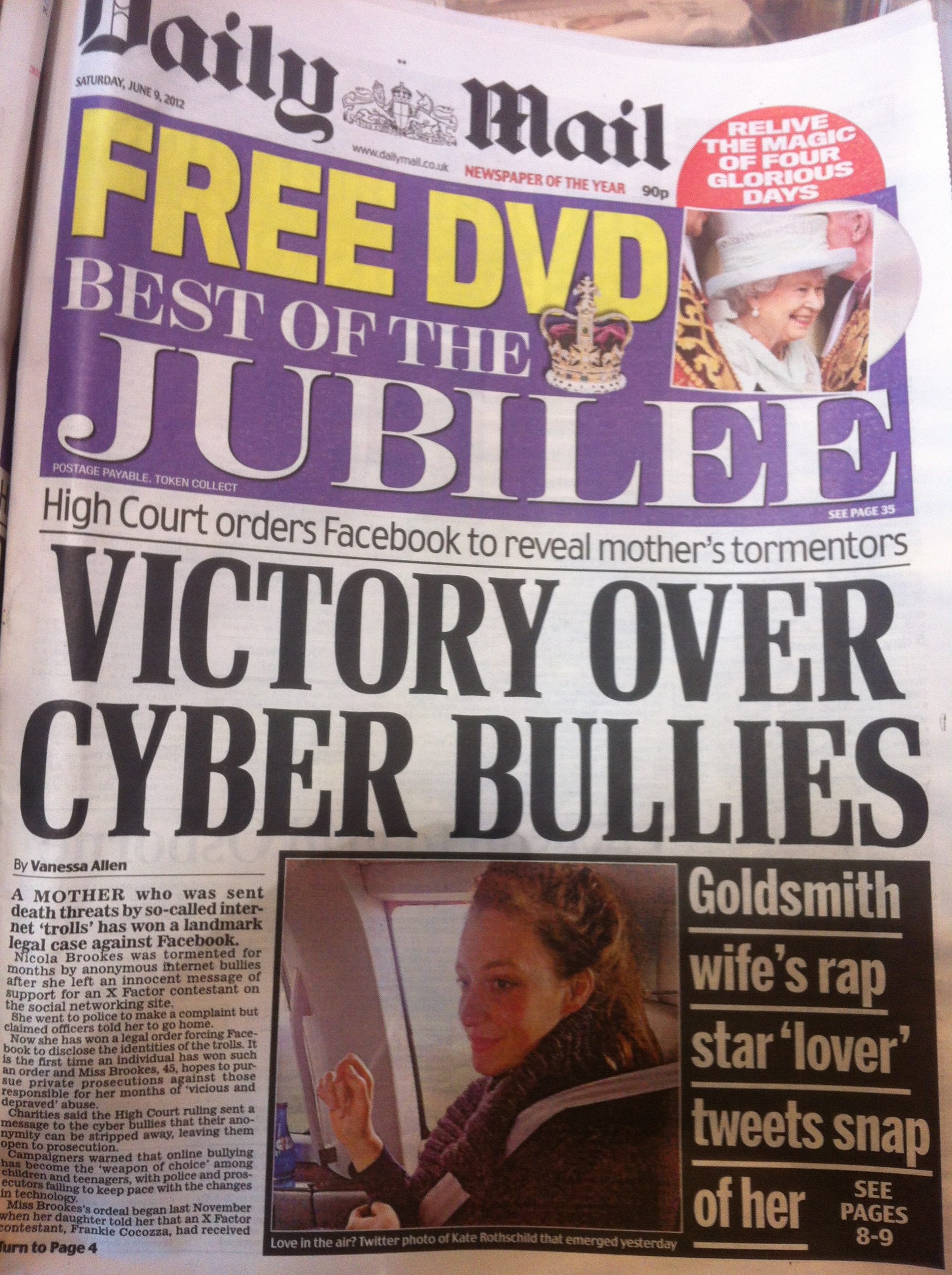This Saturday’s front page of the UK Daily Mail (June 9, 2012) featured two headline stories (below the FREE DVD promotion) both of which concerned social media. One story is regarding Facebook and the second is about Twitter. Neither of the stories is complimentary for social media or social networking. Of course, the problem is not the tool, but the fool behind the wheel!
News about or on social networks?
Both stories may be of interest for brand marketers. The “Victory over Cyber Bullies“ article relates to a legal order that forces Facebook to reveal the identity of some internet bullies or “trolls” as they are called. The key messages: digital is real and anonymity is not guaranteed. And, this should worry brands who are still keen to hide behind mirrors and fake accounts. In any event, the legal oversight of what goes on online demonstrates just how real is the experience online. Nothing virtual about that bullying. [Here is a guest post written by Lili Tarkow-Reinisch on To Facebook or Not to Facebook].
Data and privacy
The second story relates to the revealing nature of tweets and the lost art of privacy. The article inside laments the loss of decency and the unleashed indiscretions of people on social networks. There is no doubt that, on a personal level, many things would be better left off your timeline. And, there is still a relatively vocal group of people who are, ironically, happy to live under wrap & key. As some French say, “To live happily, better to live hidden.” The message for brand marketers: digital marketing will definitely not reach all people and there will be necessary limits placed on how “racey” should be our calls to attention, much less calls to action.
Everyday news… some bad, some good
Social media is becoming everyday news. It also is a reflection, everyday more, of the society we live in. And, there’s plenty of bad out there. News has a tendency to want to publish the scandalous and bad. Still, I continue to believe there is plenty of good out there and it’s a question of common sense and discipline as to how one uses social media. Here’s a final example of a story of how Facebook helped in part to save someone from an unfair prison sentence.
Your thoughts?











